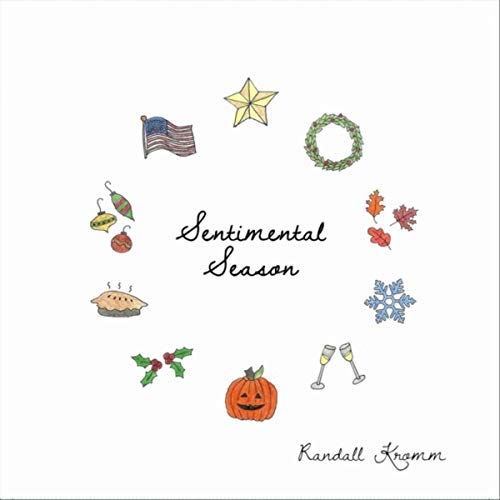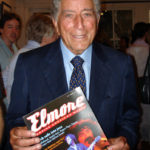Artist: Randall Kromm
Album: Sentimental Season
Label: Trespass Music
Release Date: 10.1.18

There doesn’t seem to be a cynical bone in singer-songwriter Randall Kromm’s entire body. That, in and of itself, is refreshing in this day and age of ill-tempered skepticism. Earnest to a fault, his new album Sentimental Season is like a scrapbook of family holiday memories, wheeling through an affecting song cycle of light, homey folk and Americana that gathers warm lyrical remembrances of Halloween, Thanksgiving, Veteran’s Day, Christmas and New Year’s Eve and wraps them in honeyed vocal harmonies – delicately woven by Kromm and his daughters, Emma and Grace – and lithe acoustic intricacies.
Lighthearted at times, as Kromm offers a comical, metaphorical critique of society’s all-consuming preoccupation with media of various forms in the sweeping bluegrass rush of “Train of Zombies” and humorously counts his blessings in “Thankful,” Sentimental Season delights in small, mundane pleasures. As a dad, Kromm waxes nostalgic about his kids putting away for good childish things, like dressing up in garish costumes and indulging in trick-or-treating rituals, in a reflective, bittersweet “It’s Halloween (and It’s Beautiful Out),” while also weighing the joys and complications of large get-togethers in the feel-good glow of the folk-pop gem “Coming from Everywhere, Home.”
Beautiful arrangements and gently played mandolin, piano, dobro, accordion, upright bass, harmonica and acoustic guitar from Kromm and a well-chosen cast of musicians, including Joe Barbato, Peter Tillotson and Eric Kilburn, coax downhome melodies and a range of emotions out of rustic instruments. Kromm’s somber and thought-provoking meditation on soldiers and their sacrifices in “The Most Important Thing” is heartfelt and moving, as the soft, swaying jazz of a title track full of Yuletide contentment feels as comforting as lounging in front of a roaring fire. Kromm’s idealism shines through in “Building Together,” a graceful, ivory-tinkling tribute to Native Americans that sympathizes with their struggles, and “Wouldn’t I Have Known” argues for a return to traditional values of not only loving, but also caring for, thy neighbor—no matter their troubles. It seems like a perfect time for that kind of message.
—Peter Lindblad







Be the first to comment!